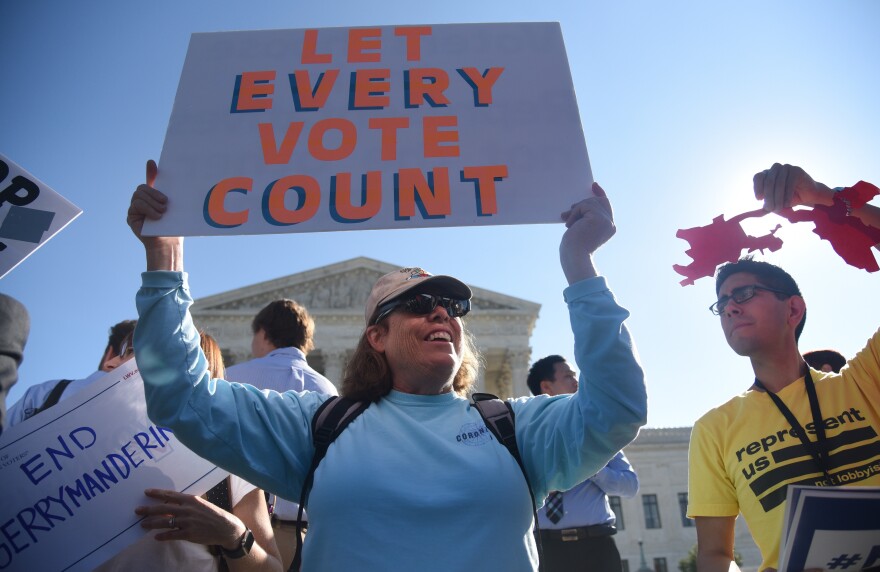There have been several significant rulings recently in the continued fight over partisan gerrymandering in states around the country. The US Supreme Court this week said it won’t interfere with a ruling ordering Pennsylvania lawmakers to redraw Congressional district maps, which state courts had found in violation of the state constitution.
But the court also stayed rulings in North Carolina, Texas, and of course, Wisconsin, which likely will leave existing maps in place for the next elections. So what could that mean for the so-called blue wave so many pundits are predicting in 2018?
"There has been so much litigation about these maps... As a result, there has been all kinds of new evidence that's been subpoenaed, evidence that's come in through the discovery process, and what it shows is that the Republicans were working on this redistricting campaign before even the 2008 election."
David Daley has written extensively about the issue of gerrymandering for Salonand wrote a book about it, Ratf****d: The True Story Behind the Secret Plan to Steal America's Democracy. The book looks at Project REDMAP, the Republican plan to dominate state-level elections in 2010 in hopes of controlling the redistricting process and gerrymandering districts to the benefit of Republican lawmakers.
Daley recently discovered an earlier timeline for Project REDMAP through information revealed in trials over gerrymandered voting maps.
He explains, "There has been so much litigation about these maps... As a result, there has been all kinds of new evidence that's been subpoenaed, evidence that's come in through the discovery process, and what it shows is that the Republicans were working on this redistricting campaign before even the 2008 election."
Daley continues, "So early in 2008 they are already fundraising and asking their donors to contribute to an effort to win state legislative chambers so that the party can have an outsized influence over redistricting when the new lines are drawn after 2010."
"Here we are heading into the fourth election on these maps and the Republican advantage that they achieved because of these victories back in 2010 and the lines that they drew in 2011, still endures."
The Republicans were successful, and since the lines were redrawn in states like Wisconsin, it has become nearly impossible for incumbent parties to be displaced.
For those predicting a blue wave in the 2018 election, Daley says that will prove very difficult in states with gerrymandered maps.
"Here we are heading into the fourth election on these maps and the Republican advantage that they achieved because of these victories back in 2010, and the lines that they drew in 2011, still endures," he says.
The U.S. Supreme Court is still considering a Wisconsin redistricting case, Gill v. Whitford, as well as a similar case from Maryland, Benisek v. Lamone. A decision on both cases is expected some time this spring, but Daley says it's unlikely that maps will be redrawn before the 2018 election.
He says, "The danger of all of this... is that it encourages politicians to simply try to run out the process. So it could well be that these maps in Maryland and also in Wisconsin, as well as North Carolina, are proven unconstitutional, but they've survived for 8 out of 10 years of a decade... I would say that's pretty dangerous for the idea of democracy."







